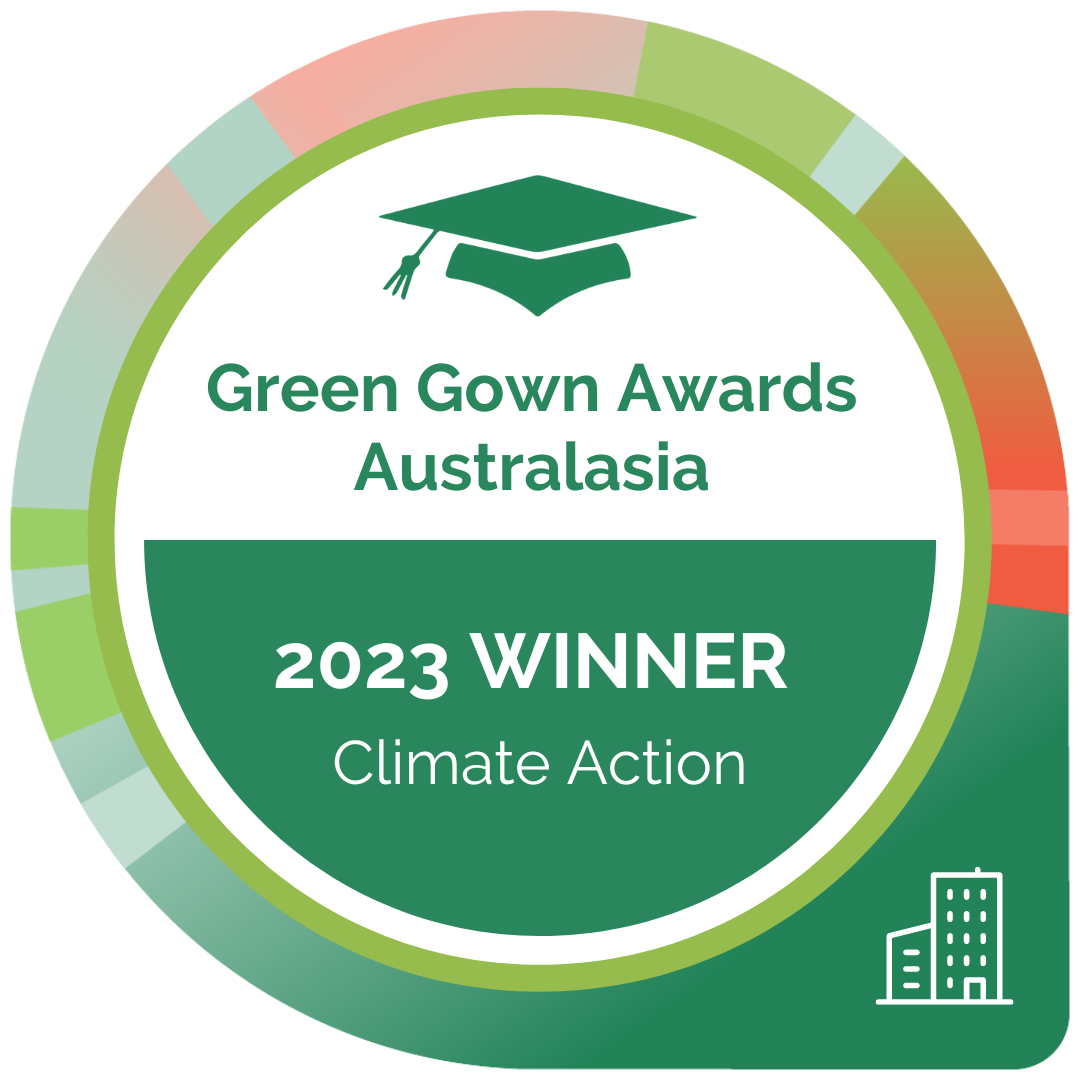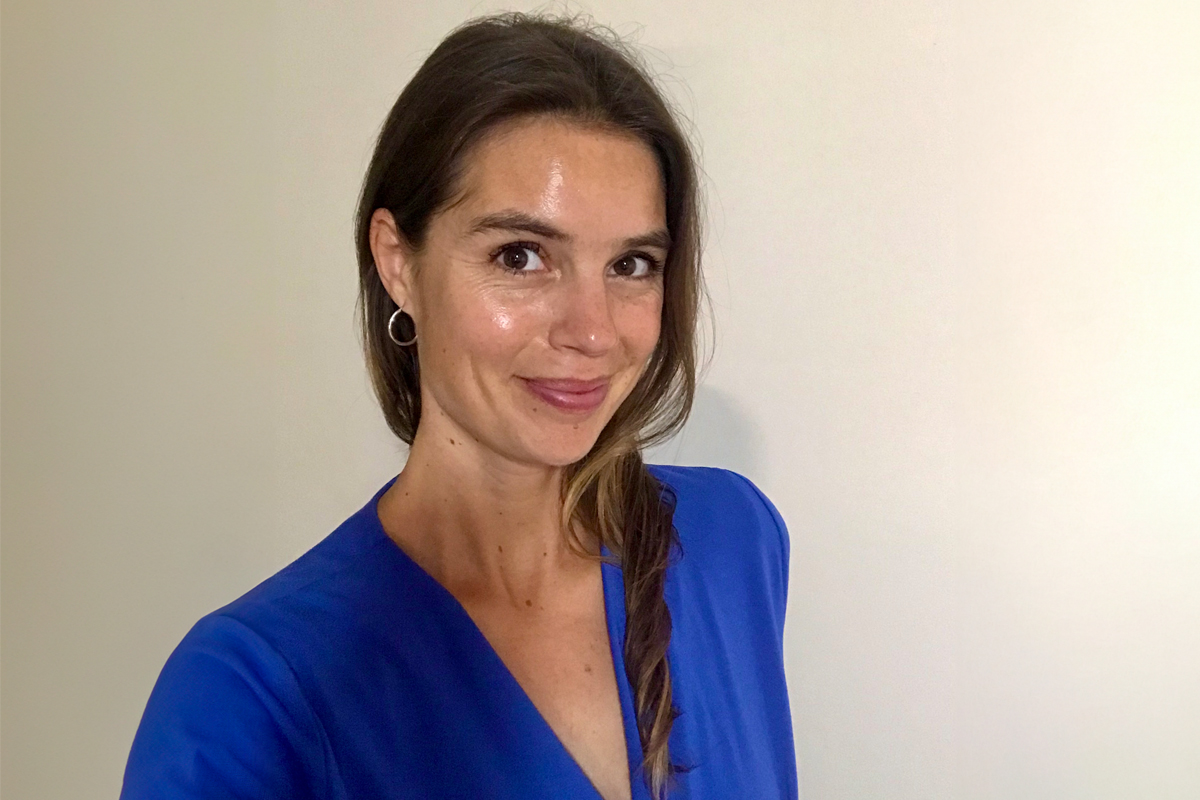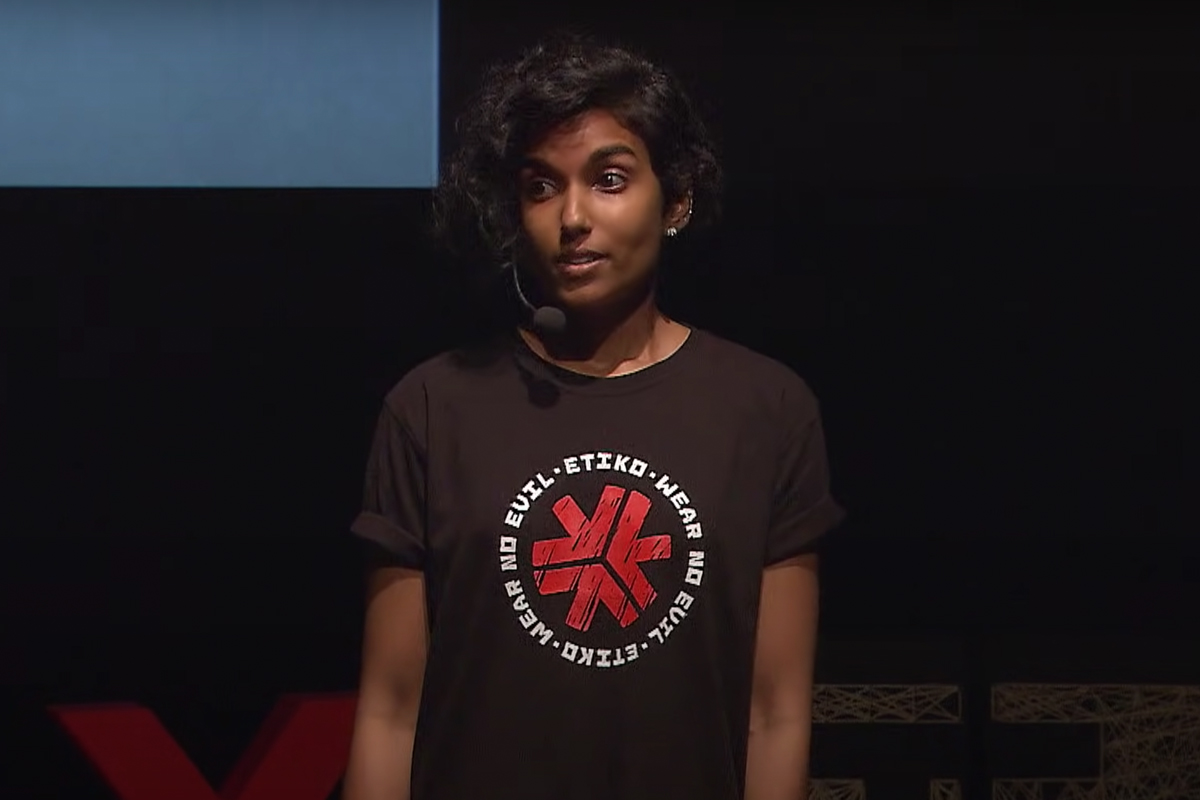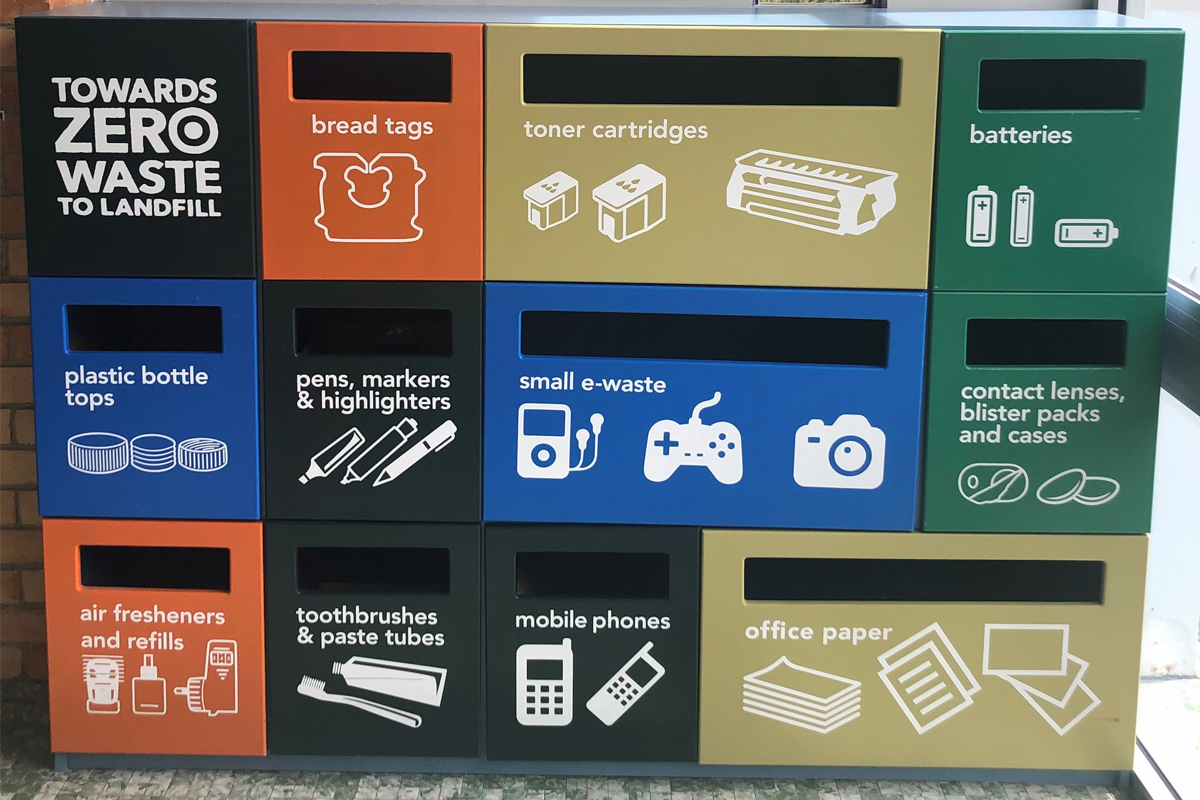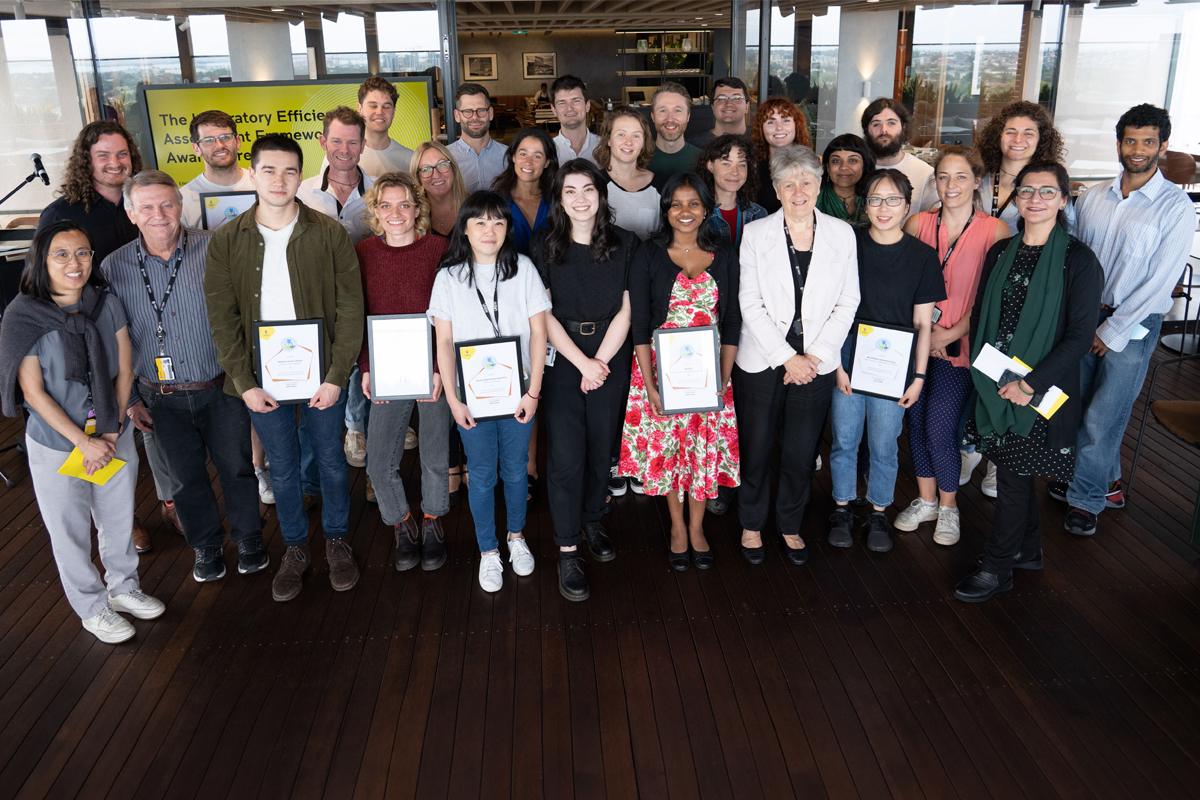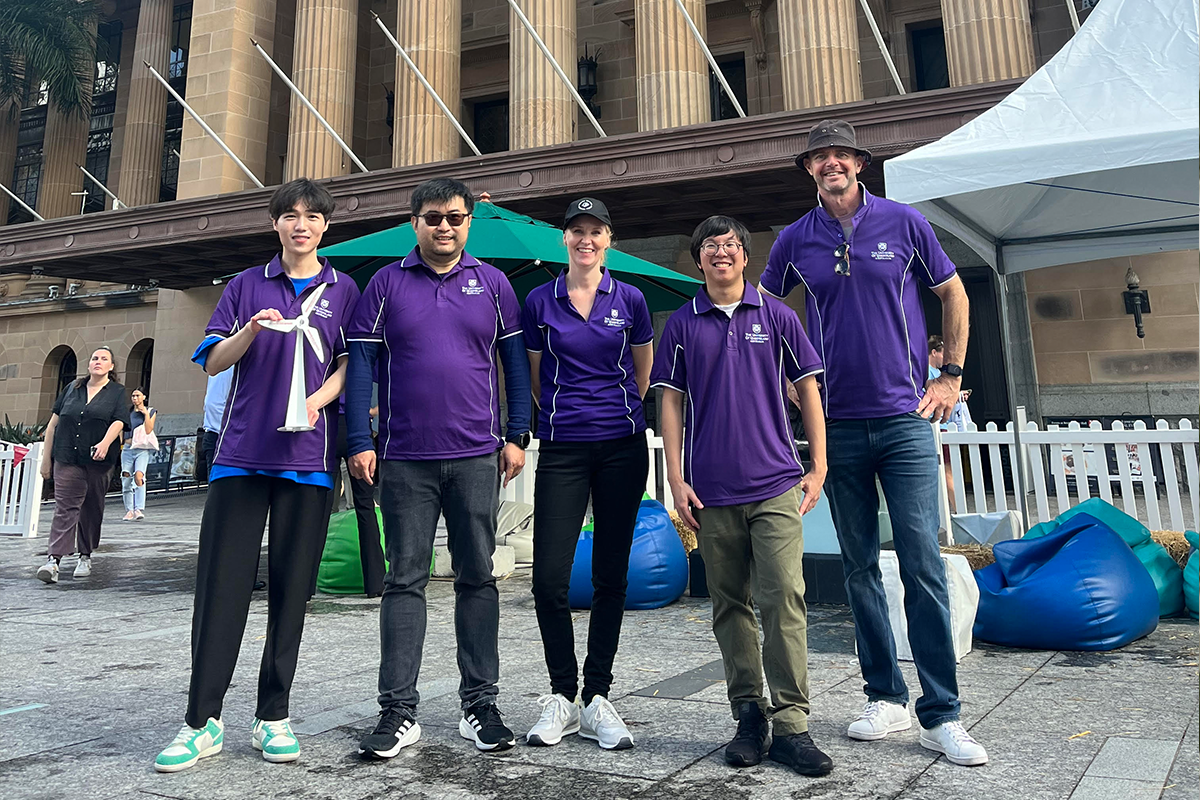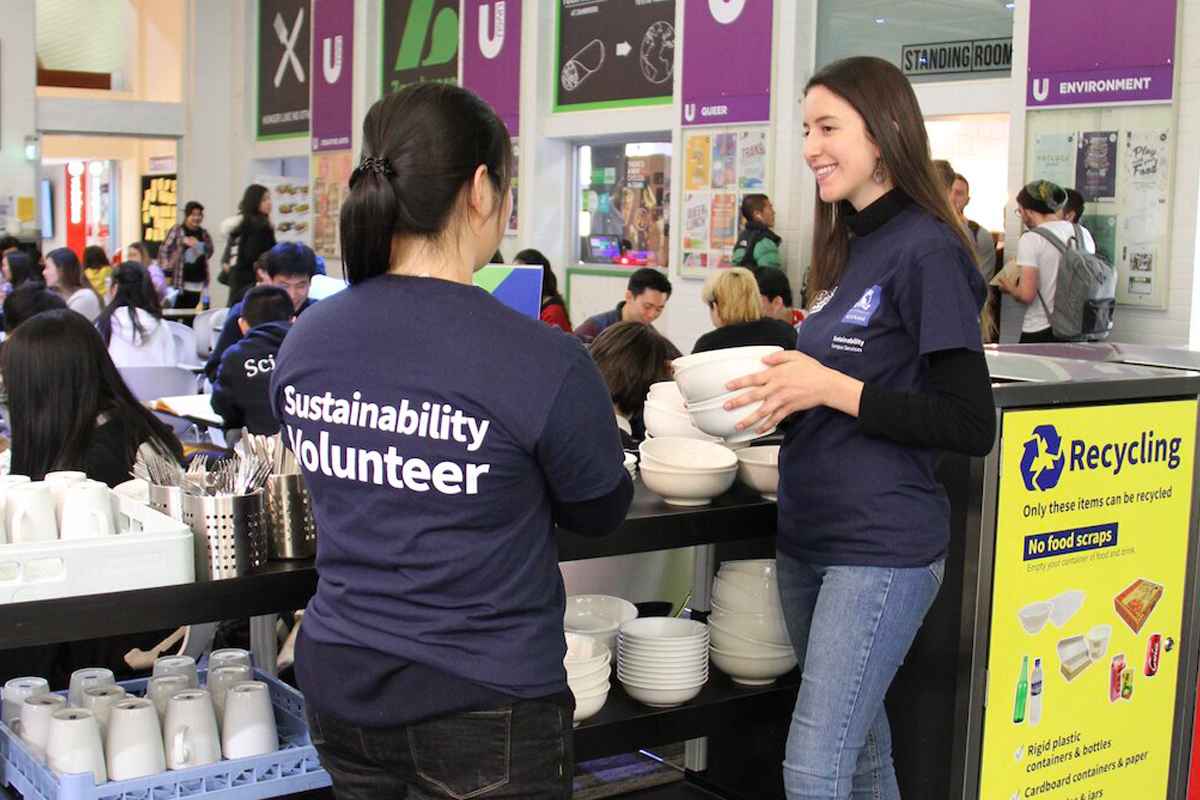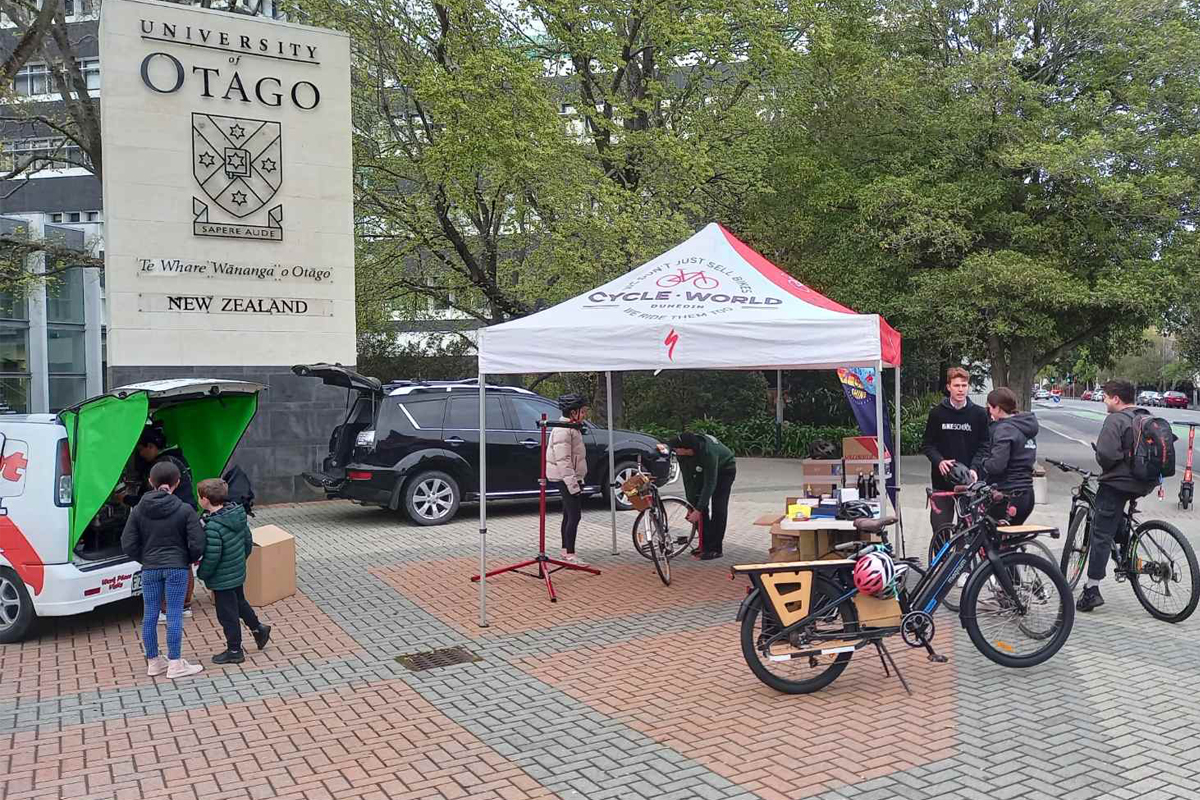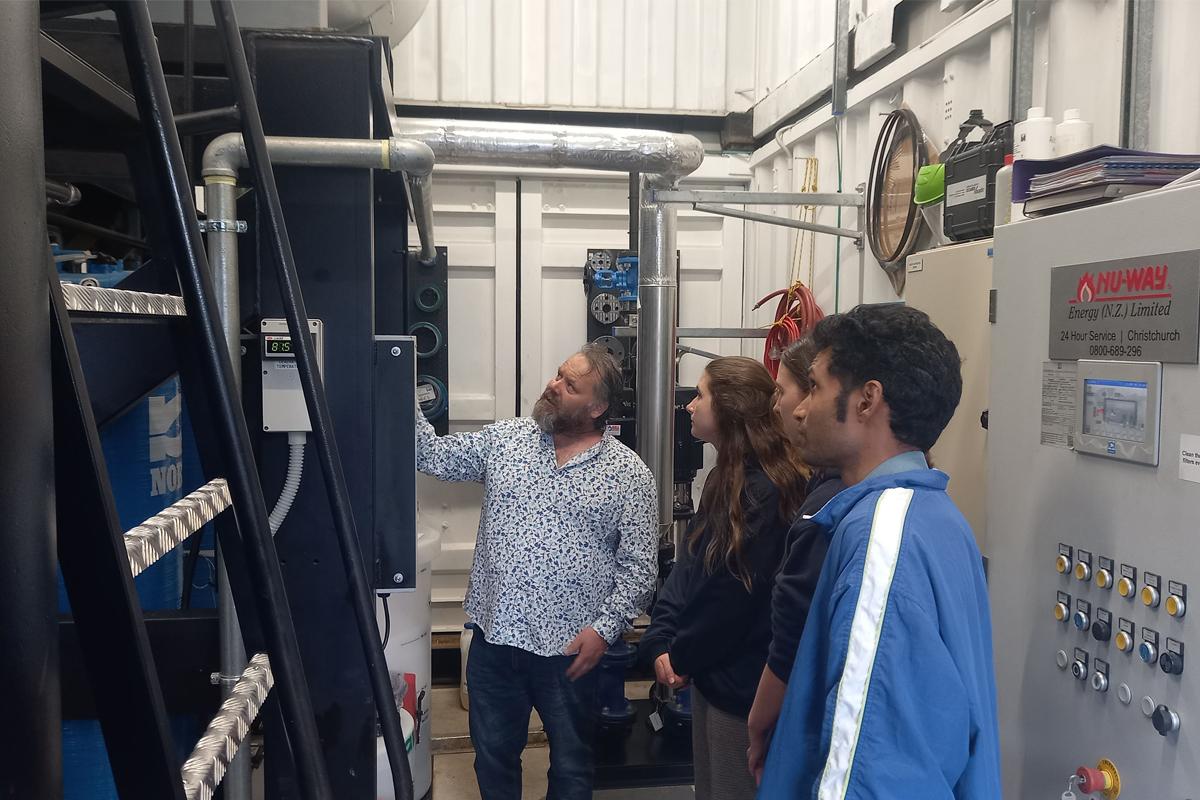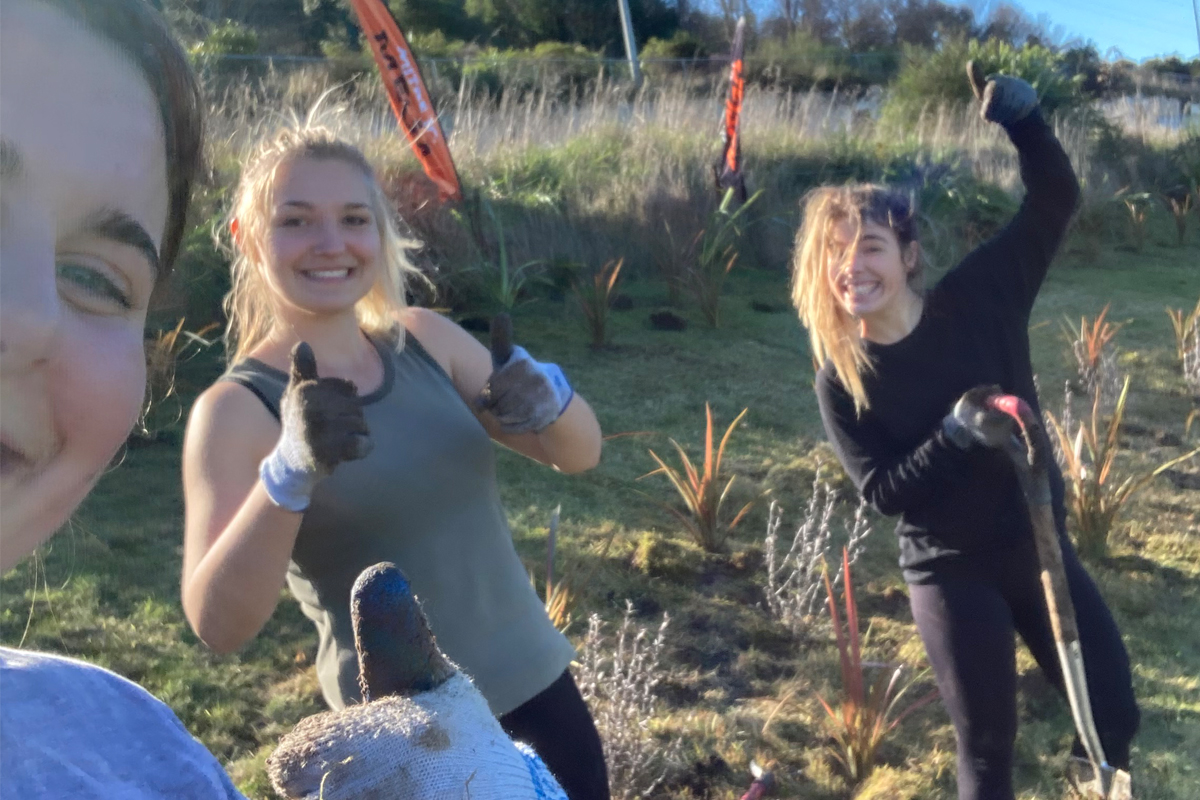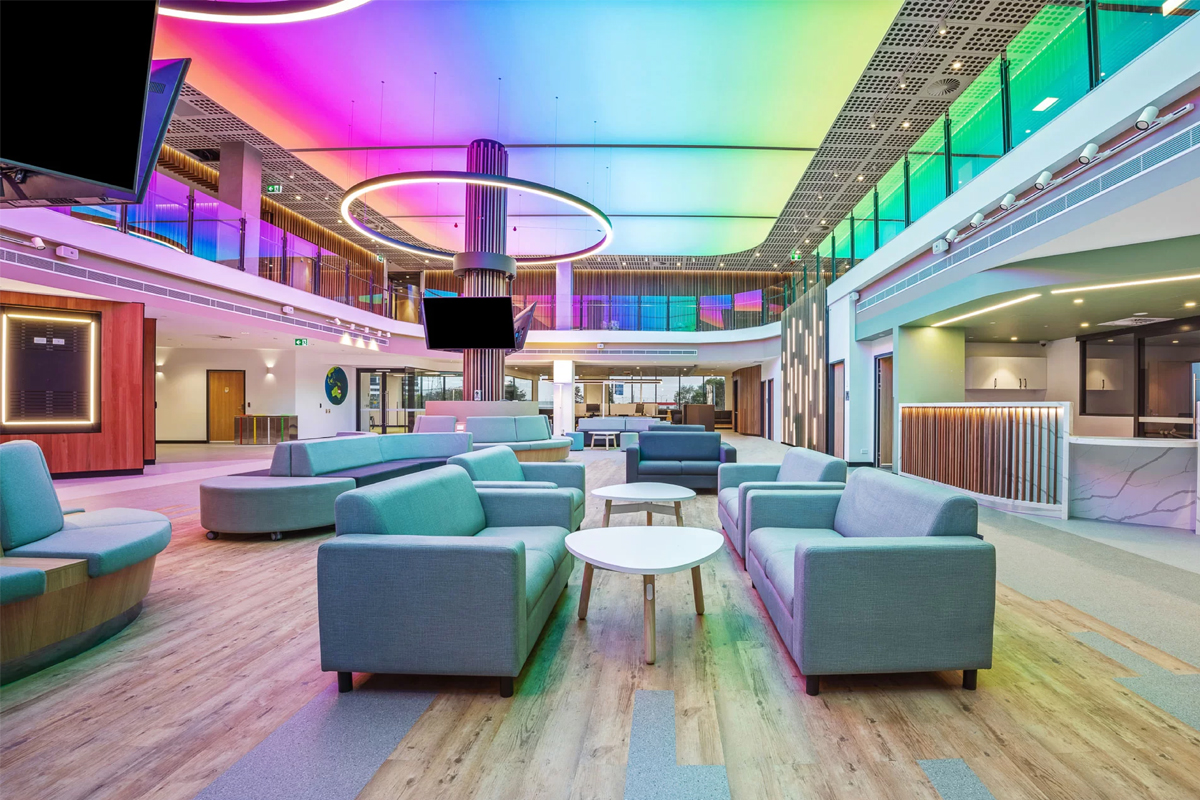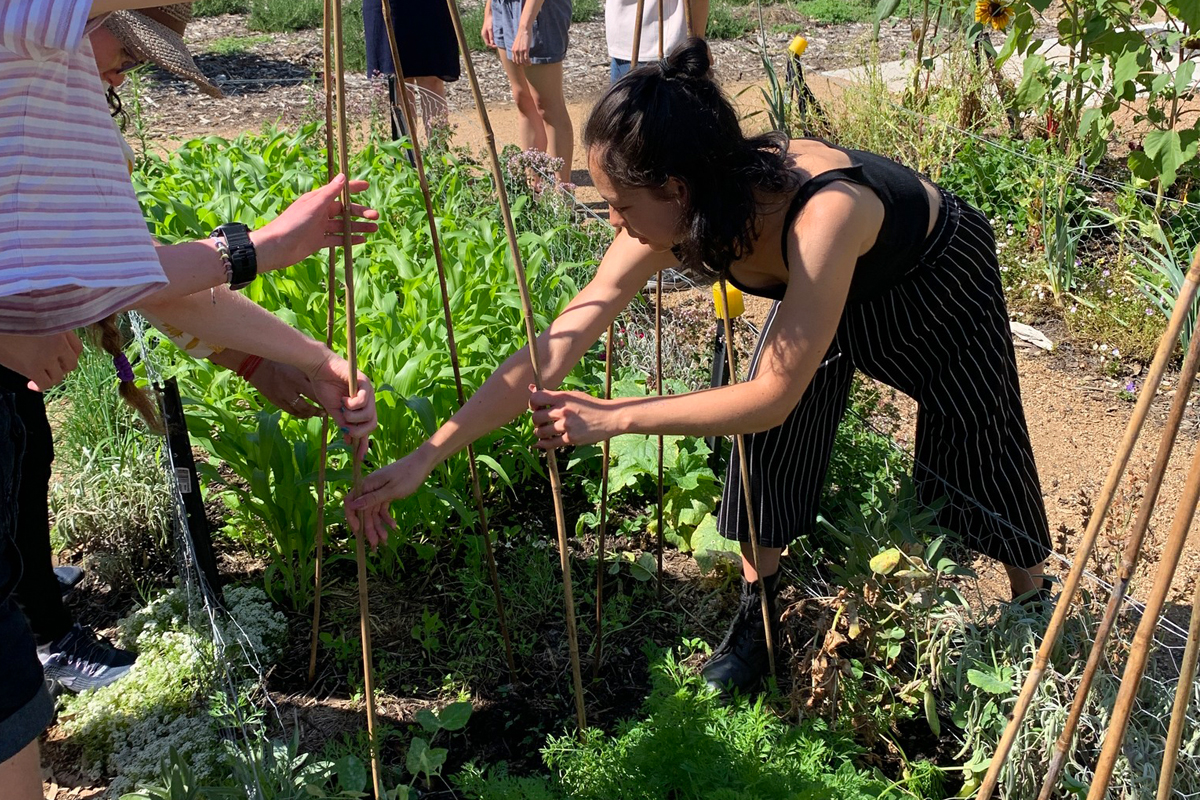Climate Action/Winners category
Potential climate impacts on Western Sydney have been well recognised with the history of urban heat, and bushfire risk. To address the adapting need of Western Sydney University (Western), resilience planning began in 2018, adapting the Rockefeller Foundation 100 Cities model which had been used by Resilient Sydney (Preliminary Resilience Assessment 2019). In 2019, Resilience roadshows were undertaken on 2 campuses, drawing upon the range of tactical Living Labs developed with academics and researchers. In 2019 the catastrophic bushfires affecting Eastern Australia impacted upon the region, along with the Covid Pandemic in 2020/21, the hottest day recorded in Penrith of 49.8 degrees on 4th January 2020, and the subsequent series of floods from 2021. The cumulative impacts of these extreme conditions on organisations and communities are a clear example of the ‘cascading failures’ that resilience planning attempts to avoid, and a broad community recognition that climate impacts are here and now in Western Sydney. The second version of resilience planning (Climate Ready discussion paper 2021) incorporated lessons learned from the 2019-2020 bushfires, including the perspective of resilience as a life cycle of preparation, response, recovery and improvement.
Institutionally, the critical importance of sustainability and resilience are established as core pillars for Western in our strategic plan “Sustaining Success 2021-2026” and the decadal strategy “Sustainability and Resilience 2030”. In late 2021, targets for organisational climate action were fast-tracked though commitment to the UN-led “Race to Zero for Colleges and Universities” with targets of Carbon Neutral 2023 and Climate Positive 2029. Initiatives to address Scope 2 emissions were already underway with electricity supply contracts incorporating 100% GreenPower accredited renewable sources. With the support of the NSW Sustainable Engagement program, the consultants 100% Renewables were engaged to seek Climate Active certification as Cabon Neutral which was achieved in April 2023. While undertaking the ‘True Up’ process in early 2023, the 2021 baseline carbon footprint of Scopes 1,2 and 3 used for certification was used as a starting point for a 5 Year Carbon Transition Plan. An Alumni of Western and Manager of Veolia Energy Solutions had sought a partnership process to aid our Net Zero pathway, and subsequently procurement sought to utilise the plan as a first step. Within a limited timeframe, initial liaison and co-design was undertaken with representatives from the Estate Planning and Strategy, Infrastructure Services, Safety and Security, Estate Development, Commercial Services, Environmental Sustainability and Procurement teams to inform the identification of high-level strategies. Veolia then assisted with quantitative carbon engineering and modelling building upon our carbon footprint and industry benchmark. The broad strategies across Scopes 1,2 and 3 provide a robust framework for decarbonisation efforts. These include fuel switching away from natural gas and fuels (Scope 1), continued GreenPower sourcing supported by increased on-site PV generation and storage (Scope 2), and the development currently underway of ethical procurement guidelines (Scope 3).
As part of these co-design discussions a range of integrative opportunities were identified, building upon the campus assets of Western, the range of tactical Living Lab engagements underway, and broader organisational partnerships. These included Nature Positive as an emergent target to complement that of Climate Positive. A Biodiversity Stewardship Site had already been established at Hawkesbury campus, with income derived utilised for transitional needs to purchase carbon offset in countries with whom the University had established teaching and learning collaborations. Along with the flagship climate research undertaken by the Hawkesbury Institute of the Environment, living lab collaborations have been brought to a more strategic and integrated level through clustering as Nature Positive Living Labs. Established circular economy initiatives underway such as water recycling and stormwater harvesting with local government and utility organisations have provided a platform for larger emerging circular economy opportunities with food and organic waste in collaboration with the Hawkesbury Circular Economy Hub, which is in design phase. Established engineering living labs associated with renewable generation, the Internet of Things and BIM modelling, along with Green Star accredited buildings are transforming into a strategic Smart Buildings precinct.
The dimensions identified above of resilience planning, carbon transitioning, and the strategic living lab development provide a robust framework for our continued progress towards organisational climate action, with layers of co-design with operational areas of the University, campus-based teaching and learning living labs, and broader organisational partnerships.

Environmental and social benefits
Western Sydney University is an anchor institution for Greater Western Sydney, and a global leader in the Times Higher Education (THE) Impact Rankings, placing first worldwide in 2022 and 2023, The THE Impact Rankings is the main global ranking system that assesses universities on their commitment to the United Nations’ 17 Sustainable Development Goals (SDGs). Rankings are based on a universities’ teaching, research, outreach and stewardship, and Western has been recognised as 1st in the world for SDG 5 Gender Equality, SDG 12 Responsible Consumption and Production, and SDG 17 Partnership for the Goals.
Western has a strong responsibility to engage and demonstrate integrated strategies to achieve environmental and social outcomes for the communities of Western Sydney. The operational outcomes include clear pathways for both mitigation and adaptation to climate change risks for Western its corporate partners and for the numerous local government organisations. Engagement with these processes further demonstrates to both current and future students/staff Western’s strong commitment to engaging with emerging institutional arrangements, by learning our way through these from an operational perspective and providing strategies and lessons learned as teaching and learning resources. Coordination of climate change risks and local nature based solutions is an essential need for the communities of Western Sydney, and lessons learned contribute to broader organisational and community partnerships for climate action. Western also contributes lessons learned to the broader university sector, including the Innovative Research Universities (IRU) network’s Sustainability Working Group, TEFMA’s sustainability forums, and the ACTS network through this application.
Leadership and engagement
The distinctive aspects of this proposal are the bold and connected nature of key initiatives, reflecting a university ‘walking the talk’ in a manner consistent with a global leader in SDG practices. The previous efforts towards biodiversity stewardship set Western in good stead to not just be bold on the mitigation and adaptation dimensions of climate action but also to be at the forefront of complementary Nature Positive initiatives and targets. The complexity of these inter-related dimensions demands co-design from a broad range of subject matter expertise, both operational, academic and external technical support, particularly given the rapidly emerging institutional arrangements and stakeholder expectations in relation to climate action.
Significance to the sector
The Tertiary Sector is grappling with the big issues facing both societies today, and the role of universities going forward. This initiative reflects an example of coordinating multiple methodologies and professional knowledge from many areas of the University in developing clear and interconnected strategies for addressing one of these macro-level challenges – climate change action. While only a step along the path towards a low carbon and resilient future, the initiatives outlined here are clearly reproducible and adaptable to differing organisational contexts.
Wider societal impact
Climate action is a global mega issue being faced worldwide with significant natural disasters impacting on communities, governments and organisations. A broad range of tactical and strategic actions are required now for both mitigation efforts to attempt to decarbonise as soon as possible and avoid the overshooting modelled climate change targets by the Intergovernmental Panel on Climate Change (IPCC). Adaptation strategies such as resilience planning are required now to enable communities and organisations to deal with the symptoms of climate variability already impacting worldwide. Further it is well recognised that while developed countries hold the ability to influence these changes, the impacts of not achieving mitigation targets have a greater negative impacts on lower socioeconomic populations around the world. The agile development and implementation of a range of organisational strategies is a critical current need, and this application outlines the early development of Western’s response to these important issues. We hope this is a useful pragmatic contribution to a critical current discourse.
Learner/Graduate employer impact
Providing emerging tools and methodologies as teaching and learning resources, and contextual applications as living labs, is very important to enable our graduates to engage with the associated professional roles demanded now. Corporate, government and community demand and opportunities for sustainability professions is rapidly increasing. The faster that organisational lessons learned can be translated into student content, the faster graduate attributes will reflect a critical awareness of these methodologies. The rapidity of change will also require increasing agility by both employee organisations and job-ready graduates.
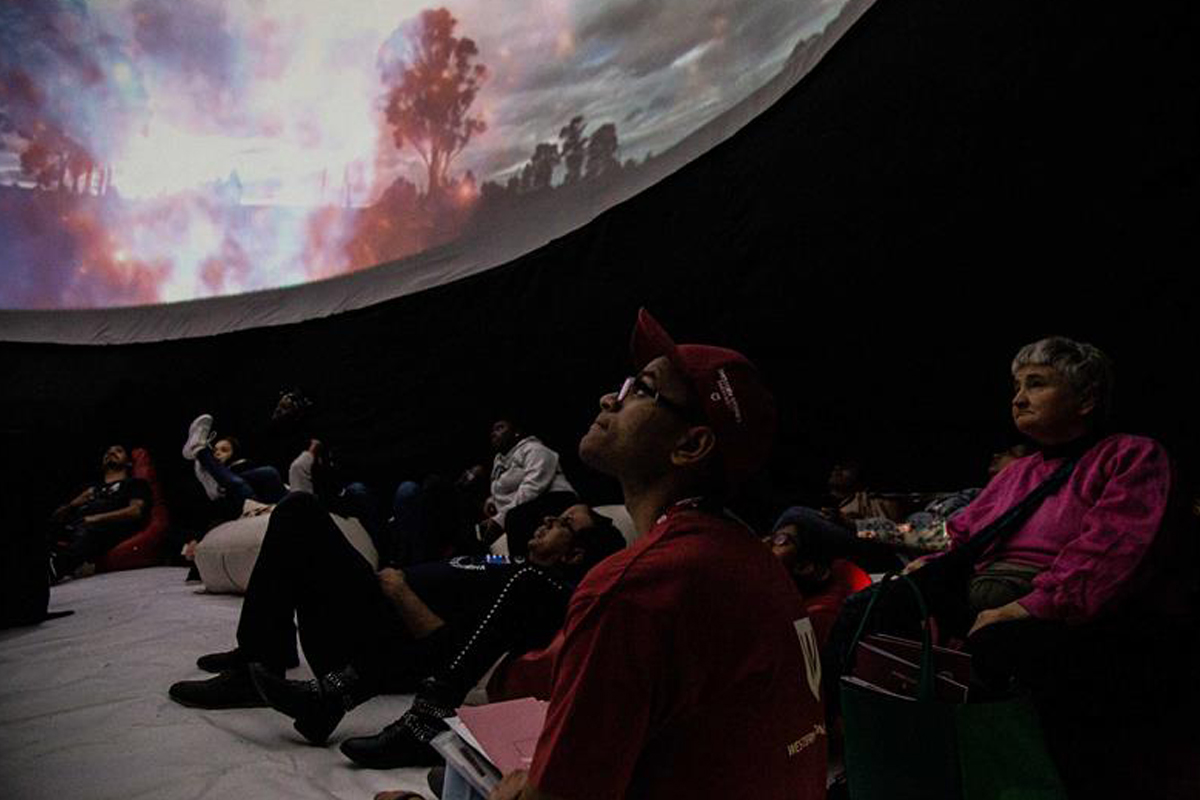
Top 3 learnings
Related finalists
Benefitting Society/Winners
Benefitting Society/Winners
Sustainability Champion – Student/Winners
Sustainability Champion – Student/Winners
Creating Impact/Winners
Creating Impact/Winners
Sustainability Champion – Student/Winners
Sustainability Champion – Student/Winners
Creating Impact/Winners
Creating Impact/Winners
Leading the Circular Economy/Winners
Leading the Circular Economy/Winners
Creating Impact/Winners
Creating Impact/Winners
Diversity, Equity & Inclusion in Sustainability/Winners
Diversity, Equity & Inclusion in Sustainability/Winners
Next Generation Learning & Skills/Winners
Next Generation Learning & Skills/Winners
Leading the Circular Economy/Winners
Leading the Circular Economy/Winners
Sustainability Institution of the Year/Winners
Sustainability Institution of the Year/Winners
Climate Action
Climate Action
Next Generation Learning & Skills/Winners
Next Generation Learning & Skills/Winners
Sustainability Champion – Staff/Winners
Sustainability Champion – Staff/Winners
Sustainability Champion – Student/Winners
Sustainability Champion – Student/Winners
Next Generation Learning & Skills/Winners
Next Generation Learning & Skills/Winners
Sustainability Champion – Staff/Winners
Sustainability Champion – Staff/Winners
Sustainability Champion – Staff/Winners
Sustainability Champion – Staff/Winners
Climate Action
Climate Action
Student Engagement/Winners
Student Engagement/Winners
Other finalists
Climate Action
Climate Action
Sustainability Champion – Staff/Winners
Sustainability Champion – Staff/Winners
Student Engagement
Student Engagement
Creating Impact
Creating Impact
Sustainability Champion – Staff/Winners
Sustainability Champion – Staff/Winners
Sustainability Champion – Student
Sustainability Champion – Student
Top 3 learnings
Climate Action/Winners category
Potential climate impacts on Western Sydney have been well recognised with the history of urban heat, and bushfire risk. To address the adapting need of Western Sydney University (Western), resilience planning began in 2018, adapting the Rockefeller Foundation 100 Cities model which had been used by Resilient Sydney (Preliminary Resilience Assessment 2019). In 2019, Resilience roadshows were undertaken on 2 campuses, drawing upon the range of tactical Living Labs developed with academics and researchers. In 2019 the catastrophic bushfires affecting Eastern Australia impacted upon the region, along with the Covid Pandemic in 2020/21, the hottest day recorded in Penrith of 49.8 degrees on 4th January 2020, and the subsequent series of floods from 2021. The cumulative impacts of these extreme conditions on organisations and communities are a clear example of the ‘cascading failures’ that resilience planning attempts to avoid, and a broad community recognition that climate impacts are here and now in Western Sydney. The second version of resilience planning (Climate Ready discussion paper 2021) incorporated lessons learned from the 2019-2020 bushfires, including the perspective of resilience as a life cycle of preparation, response, recovery and improvement.
Institutionally, the critical importance of sustainability and resilience are established as core pillars for Western in our strategic plan “Sustaining Success 2021-2026” and the decadal strategy “Sustainability and Resilience 2030”. In late 2021, targets for organisational climate action were fast-tracked though commitment to the UN-led “Race to Zero for Colleges and Universities” with targets of Carbon Neutral 2023 and Climate Positive 2029. Initiatives to address Scope 2 emissions were already underway with electricity supply contracts incorporating 100% GreenPower accredited renewable sources. With the support of the NSW Sustainable Engagement program, the consultants 100% Renewables were engaged to seek Climate Active certification as Cabon Neutral which was achieved in April 2023. While undertaking the ‘True Up’ process in early 2023, the 2021 baseline carbon footprint of Scopes 1,2 and 3 used for certification was used as a starting point for a 5 Year Carbon Transition Plan. An Alumni of Western and Manager of Veolia Energy Solutions had sought a partnership process to aid our Net Zero pathway, and subsequently procurement sought to utilise the plan as a first step. Within a limited timeframe, initial liaison and co-design was undertaken with representatives from the Estate Planning and Strategy, Infrastructure Services, Safety and Security, Estate Development, Commercial Services, Environmental Sustainability and Procurement teams to inform the identification of high-level strategies. Veolia then assisted with quantitative carbon engineering and modelling building upon our carbon footprint and industry benchmark. The broad strategies across Scopes 1,2 and 3 provide a robust framework for decarbonisation efforts. These include fuel switching away from natural gas and fuels (Scope 1), continued GreenPower sourcing supported by increased on-site PV generation and storage (Scope 2), and the development currently underway of ethical procurement guidelines (Scope 3).
As part of these co-design discussions a range of integrative opportunities were identified, building upon the campus assets of Western, the range of tactical Living Lab engagements underway, and broader organisational partnerships. These included Nature Positive as an emergent target to complement that of Climate Positive. A Biodiversity Stewardship Site had already been established at Hawkesbury campus, with income derived utilised for transitional needs to purchase carbon offset in countries with whom the University had established teaching and learning collaborations. Along with the flagship climate research undertaken by the Hawkesbury Institute of the Environment, living lab collaborations have been brought to a more strategic and integrated level through clustering as Nature Positive Living Labs. Established circular economy initiatives underway such as water recycling and stormwater harvesting with local government and utility organisations have provided a platform for larger emerging circular economy opportunities with food and organic waste in collaboration with the Hawkesbury Circular Economy Hub, which is in design phase. Established engineering living labs associated with renewable generation, the Internet of Things and BIM modelling, along with Green Star accredited buildings are transforming into a strategic Smart Buildings precinct.
The dimensions identified above of resilience planning, carbon transitioning, and the strategic living lab development provide a robust framework for our continued progress towards organisational climate action, with layers of co-design with operational areas of the University, campus-based teaching and learning living labs, and broader organisational partnerships.

Environmental and social benefits
Western Sydney University is an anchor institution for Greater Western Sydney, and a global leader in the Times Higher Education (THE) Impact Rankings, placing first worldwide in 2022 and 2023, The THE Impact Rankings is the main global ranking system that assesses universities on their commitment to the United Nations’ 17 Sustainable Development Goals (SDGs). Rankings are based on a universities’ teaching, research, outreach and stewardship, and Western has been recognised as 1st in the world for SDG 5 Gender Equality, SDG 12 Responsible Consumption and Production, and SDG 17 Partnership for the Goals.
Western has a strong responsibility to engage and demonstrate integrated strategies to achieve environmental and social outcomes for the communities of Western Sydney. The operational outcomes include clear pathways for both mitigation and adaptation to climate change risks for Western its corporate partners and for the numerous local government organisations. Engagement with these processes further demonstrates to both current and future students/staff Western’s strong commitment to engaging with emerging institutional arrangements, by learning our way through these from an operational perspective and providing strategies and lessons learned as teaching and learning resources. Coordination of climate change risks and local nature based solutions is an essential need for the communities of Western Sydney, and lessons learned contribute to broader organisational and community partnerships for climate action. Western also contributes lessons learned to the broader university sector, including the Innovative Research Universities (IRU) network’s Sustainability Working Group, TEFMA’s sustainability forums, and the ACTS network through this application.
Leadership and engagement
The distinctive aspects of this proposal are the bold and connected nature of key initiatives, reflecting a university ‘walking the talk’ in a manner consistent with a global leader in SDG practices. The previous efforts towards biodiversity stewardship set Western in good stead to not just be bold on the mitigation and adaptation dimensions of climate action but also to be at the forefront of complementary Nature Positive initiatives and targets. The complexity of these inter-related dimensions demands co-design from a broad range of subject matter expertise, both operational, academic and external technical support, particularly given the rapidly emerging institutional arrangements and stakeholder expectations in relation to climate action.
Significance to the sector
The Tertiary Sector is grappling with the big issues facing both societies today, and the role of universities going forward. This initiative reflects an example of coordinating multiple methodologies and professional knowledge from many areas of the University in developing clear and interconnected strategies for addressing one of these macro-level challenges – climate change action. While only a step along the path towards a low carbon and resilient future, the initiatives outlined here are clearly reproducible and adaptable to differing organisational contexts.
Wider societal impact
Climate action is a global mega issue being faced worldwide with significant natural disasters impacting on communities, governments and organisations. A broad range of tactical and strategic actions are required now for both mitigation efforts to attempt to decarbonise as soon as possible and avoid the overshooting modelled climate change targets by the Intergovernmental Panel on Climate Change (IPCC). Adaptation strategies such as resilience planning are required now to enable communities and organisations to deal with the symptoms of climate variability already impacting worldwide. Further it is well recognised that while developed countries hold the ability to influence these changes, the impacts of not achieving mitigation targets have a greater negative impacts on lower socioeconomic populations around the world. The agile development and implementation of a range of organisational strategies is a critical current need, and this application outlines the early development of Western’s response to these important issues. We hope this is a useful pragmatic contribution to a critical current discourse.
Learner/Graduate employer impact
Providing emerging tools and methodologies as teaching and learning resources, and contextual applications as living labs, is very important to enable our graduates to engage with the associated professional roles demanded now. Corporate, government and community demand and opportunities for sustainability professions is rapidly increasing. The faster that organisational lessons learned can be translated into student content, the faster graduate attributes will reflect a critical awareness of these methodologies. The rapidity of change will also require increasing agility by both employee organisations and job-ready graduates.

Related finalists
Benefitting Society/Winners
Benefitting Society/Winners
Sustainability Champion – Student/Winners
Sustainability Champion – Student/Winners
Creating Impact/Winners
Creating Impact/Winners
Sustainability Champion – Student/Winners
Sustainability Champion – Student/Winners
Creating Impact/Winners
Creating Impact/Winners
Leading the Circular Economy/Winners
Leading the Circular Economy/Winners
Creating Impact/Winners
Creating Impact/Winners
Diversity, Equity & Inclusion in Sustainability/Winners
Diversity, Equity & Inclusion in Sustainability/Winners
Next Generation Learning & Skills/Winners
Next Generation Learning & Skills/Winners
Leading the Circular Economy/Winners
Leading the Circular Economy/Winners
Sustainability Institution of the Year/Winners
Sustainability Institution of the Year/Winners
Climate Action
Climate Action
Next Generation Learning & Skills/Winners
Next Generation Learning & Skills/Winners
Sustainability Champion – Staff/Winners
Sustainability Champion – Staff/Winners
Sustainability Champion – Student/Winners
Sustainability Champion – Student/Winners
Next Generation Learning & Skills/Winners
Next Generation Learning & Skills/Winners
Sustainability Champion – Staff/Winners
Sustainability Champion – Staff/Winners
Sustainability Champion – Staff/Winners
Sustainability Champion – Staff/Winners
Climate Action
Climate Action
Student Engagement/Winners
Student Engagement/Winners
Other finalists
Climate Action


Driving Towards Tomorrow’s Campus with Vehicle-to-Grid EV Technology
As part of Flinders University’s drive to innovate and become a leader in climate action, the University launched its Vehicle-to-Grid (V2G) initiative. This involved installing and maintaining 20x V2G and smart chargers for its growing electric vehicle fleet. Leveraging 100% renewable energy generated by ENGIE’s Willogoleche Wind Farm and Flinders University’s solar power systems, this enables the storage of renewable energy in EV batteries to be discharged on campus during peak demand periods. Hence, allows for these EV fleets to operate as a Virtual Power Plant (VPP) to deliver peak demand management and optimization of behind-the-meter generation.
Overall, this initiative demonstrates the reliability and scalability of bi-directional and uni-directional smart-charging systems for EVs in reducing GHG emissions while facilitating teaching, research, and innovation opportunities. Moreover, it exemplifies a sustainable and innovative solution to scale energy storage technology and increase renewables.
Sustainability Champion – Staff/Winners

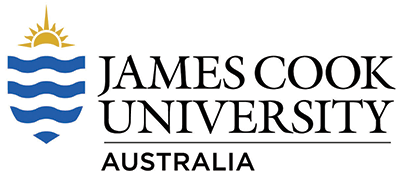
Brandan Espe
Environmental Officer / Acting Grounds Supervisor
Brandan has brought over 50 federally listed Endangered species of plant into the James Cook University living collection, many of which have never been cultivated and are found in no other collection in the world.
Of these, over half have been sustainably wild collected, inclusive of field and clone data, so they can be used for ongoing conservation, research and teaching, the remaining being sourced from private and partner organisations through favours of service or trades.
He personally funded the project from 2019-2022, until funding was awarded for the program due to its success, with the program now being engrained into the Universities landscapes for ongoing management should he leave JCU, creating a threatened species legacy collection.
The program has now expanded beyond this, with an additional 48 species now funded for further addition, some of which are only known from less than 5 sightings in history.
Student Engagement


Sustainability Leaders creating real impact!
La Trobe created a unique Sustainability Leaders volunteering program to increase engagement with students on campus and empower them to act against waste and promote sustainability. It included the following initiatives:
- Promoting the reusable crockery implementation,
- Increasing knowledge action of other students on campus to diversion comingled recycling and organic waste from landfill.
- Focus on waste audits and data,
- Improved signage through new waste posters for students living on campus.
- Collaboration with Cirka (our cleaning and waste partner) to create a waste wall and;
- Learning all things sustainability (net zero, biodiversity, waste, reusables, engagement)
These initiatives yielded significant results and with a reduction in waste contamination by almost 40% at the residential buildings and engagement with over 80 groups of people for the Reusable Revolution.
Creating Impact


Where knowledge meets habits: Empowering students for a sustainable tomorrow
Our online Sustainability Challenges offer participants an engaging, self-paced learning experience centered around a specific United Nations Sustainable Development Goal (UNSDG). Requiring minimal resourcing and at zero-cost to participants, we’ve created replicable, compact, scalable, and impactful learning opportunities that result in real impact.
The Challenges follow a structured process that moves participants from knowledge gain to simple action to celebration, to establish small but mighty habits relating to waste and carbon emissions. This approach recognises that knowledge alone is often insufficient to drive behaviour change, and that ease of action and celebration are crucial components in creating sustainable habits.
Sustainability Champion – Staff/Winners


Catherine (CeeJay) Donovan
Veterinary nurse – Anaesthesia
From establishing the Massey Vet School Green Team to leading impactful initiatives, my commitment to environmental sustainability has been making waves. With the help of my team, I have accomplished numerous small, yet meaningful actions, including integrating a sustainability lecture for final year vet students and implementing battery recycling alongside rechargeable battery use. Our larger projects encompass the introduction of green waste and soft plastics recycling bins, an energy audit resulting in power-saving measures, and playing a part in a successful rubbish audit. I spearheaded the ‘6 in 6’ campaign, empowering individuals with six simple steps for workplace sustainability. Through the SustainaVet social media pages I help to educate and inspire peers nationwide. As the Massey School of Veterinary Science sustainability champion, I had the privilege of speaking at the annual veterinary conference on sustainability in clinical practice. Currently I’m conducting pioneering research on responsible cat waste disposal. Together, we’re forging a greener future, one initiative at a time.
Sustainability Champion – Student


Louis Walmsley
SDG Coordinator Monash Association of Sustainability, Office Bearer Monash Student Association’s Environmental and Social Justice Department, Masters of Environment and Sustainability Student
Louis is an exceptional student sustainability leader at Monash University. His passion and dedication to sustainability have made a significant impact on the community. Louis’s values revolve around sustainability, which is evident upon meeting him. He actively participates in various sustainability groups, demonstrating his commitment to creating a more environmentally conscious society.
One of Louis’s notable involvements is with Precious Plastic Monash, where he organizes remarkable events and fosters collaboration among like-minded individuals, student groups, and staff. His contributions to the Monash Association of Sustainability have allowed him to conduct valuable research on plastic usage and climate action, resulting in positive changes within the university.
Through his work with the Monash Student Association, Louis has engaged hundreds of students in fun and interactive sustainability initiatives. He took the initiative to organize a sustainability food fair, which was one of the largest sustainability-related events held at Monash post-COVID. This accomplishment is a true testament to Louis’s hard work and creativity.
Louis is an outstanding student leader whose efforts in sustainability have had a lasting impact on Monash University and its community. His inspiring nature resonates with everyone who knows him.

